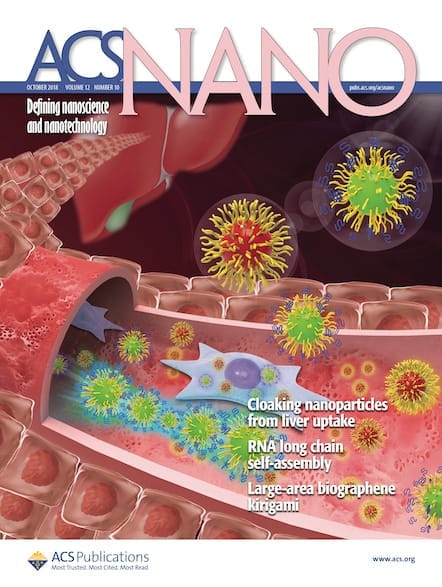The YTN Science news channel in the Republic of Korea recently highlighted an ACS Nano Virtual Issue. The issue, organized by the editors of ACS Nano with support from Dr. Sergey Shmakov, featured nanoscience research at Korea Advanced Institute of Science and Technology. KAIST is the oldest and most respected technology university in the Republic of Korea, […]

The YTN Science news channel in the Republic of Korea recently highlighted an ACS Nano Virtual Issue. The issue, organized by the editors of ACS Nano with support from Dr. Sergey Shmakov, featured nanoscience research at Korea Advanced Institute of Science and Technology.
KAIST is the oldest and most respected technology university in the Republic of Korea, having a global reputation as a world-class university. The contribution made to ACS Nano by the leading group of KAIST researchers today reflects how KAIST’s reputation has grown to international prominence.
When asked about the importance of this Virtual Issue, KAIST Department of Materials Science and Engineering Professor and ACS Nano Associate Editor Il-Doo Kim said it was an excellent opportunity for sharing the past, present, and future of KAIST with other members of ACS Nano.
“It is indeed my great pleasure and privilege to introduce the history of KAIST and its vision for the future to my fellow distinguished members of ACS Nano― a leading international research journal in the field of nanoscience. I hope this will lead to promoting a closer relationship between the members of the Journal and KAIST moving forward,” Kim said.
The Republic of Korea established KAIST during an economic downturn in 1971 with a six-million-dollar loan from U.S. Aid to foster qualified scientists and engineers to help usher in a new era of industrialization or the country. During the past five decades, KAIST has produced more than 64,000 graduates, including 13,000 Ph.D.’s. KAIST alumni have played pivotal roles in the Republic of Korea’s remarkable economic growth. KAIST alumni account for 23% of the leadership positions in the science and engineering communities in the country. For instance, in the semiconductor industry, which is dominating the global market, one in every four Ph.D.’s is a KAIST graduate.
Throughout its 48 years of history, KAIST has been the gateway for advanced science and technology, innovation, start-up and entrepreneurship in the Republic of Korea. KAIST now further envisions to become a “Global Value-Creative World-Leading University” at the forefront of impacting the global community and contributing to global sustainability.
